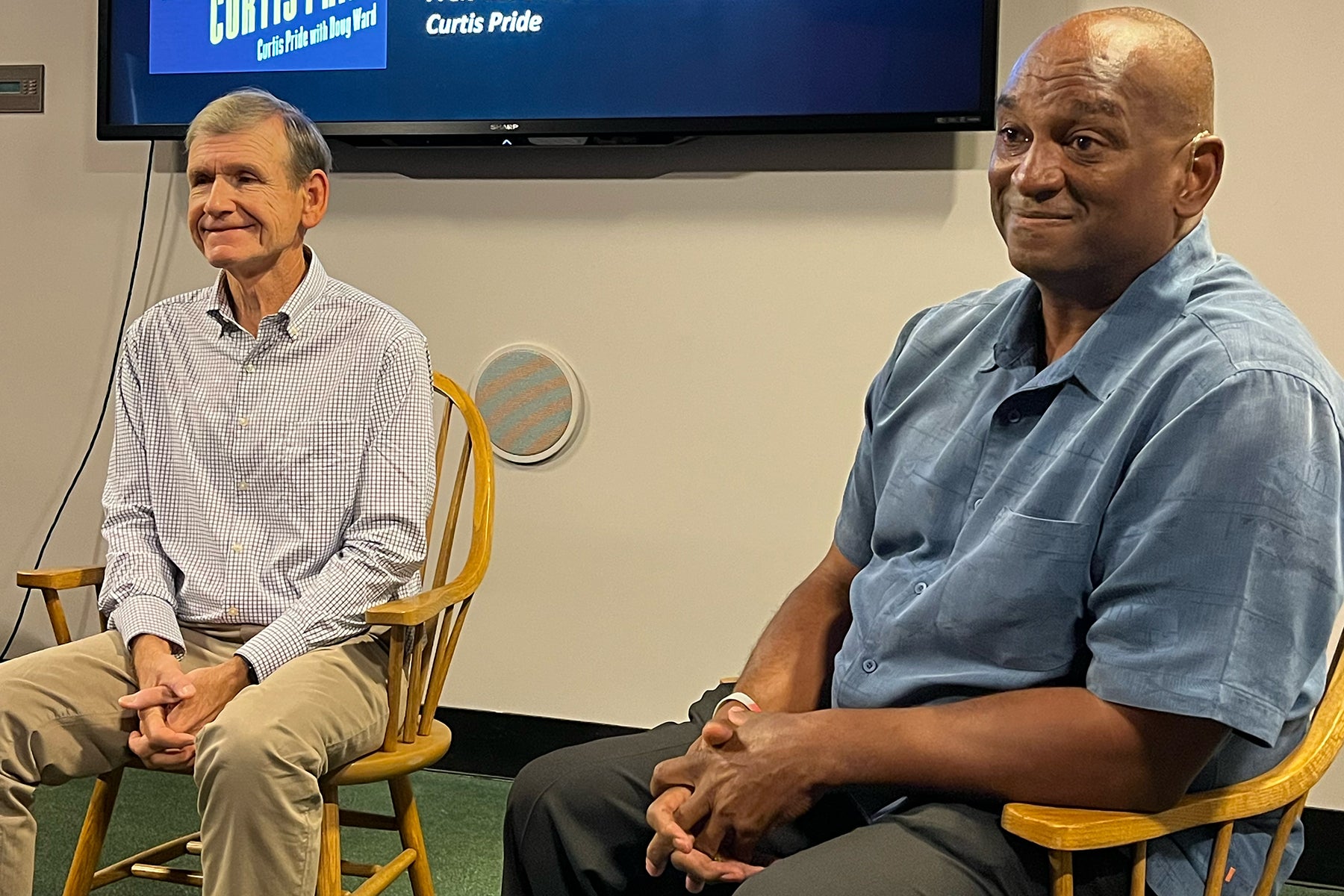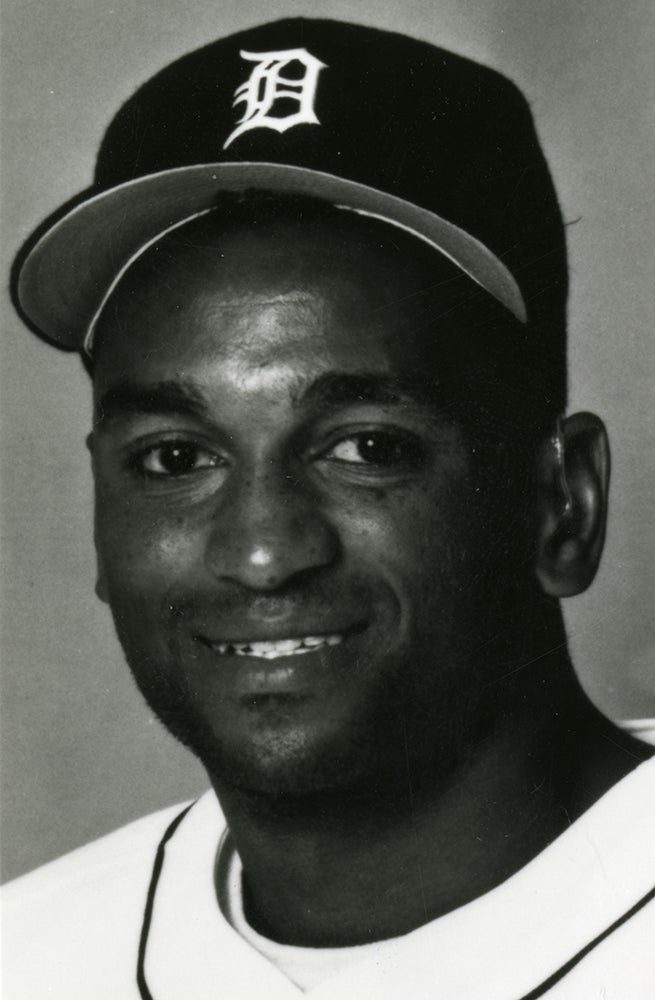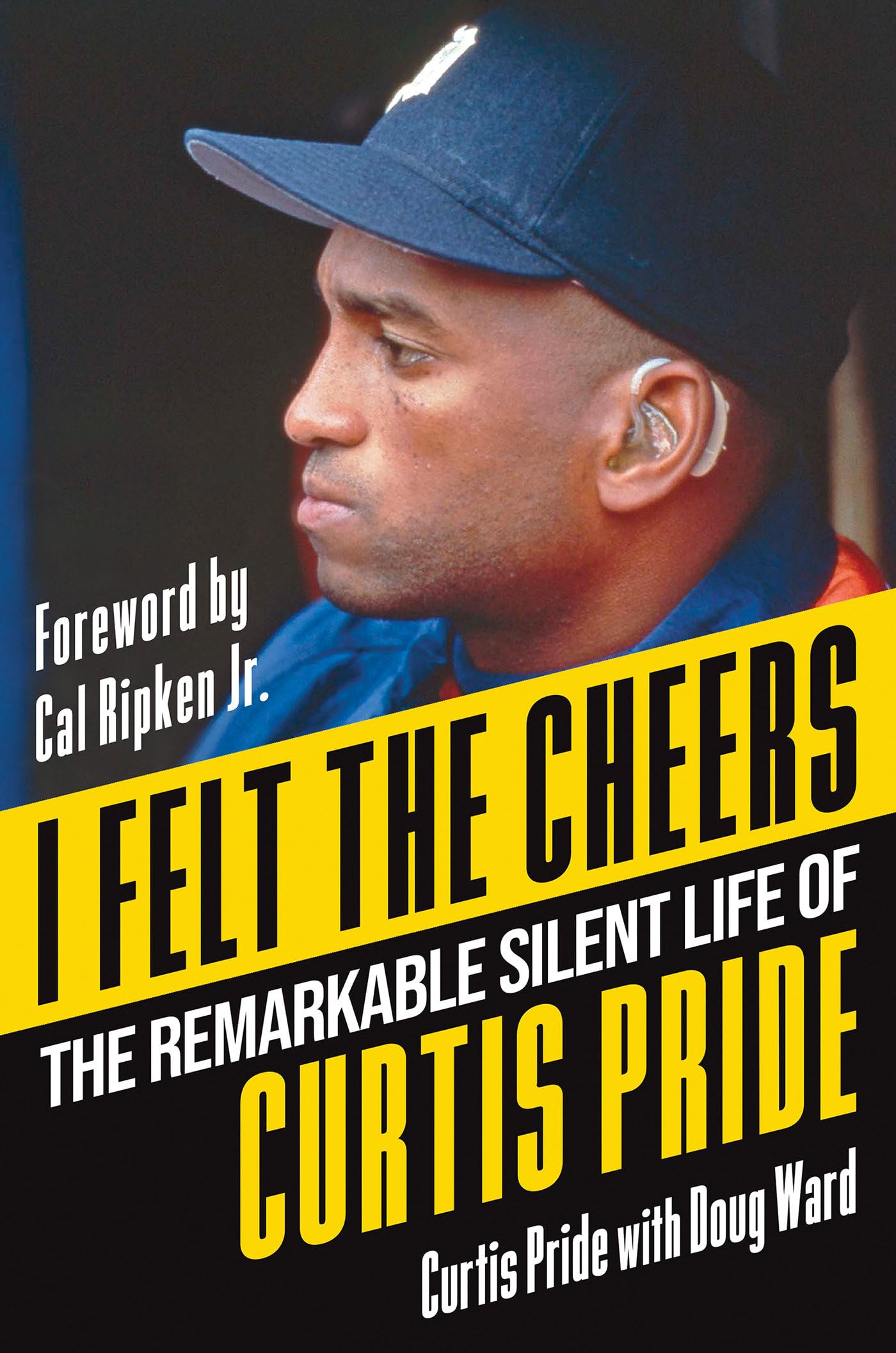Pride brings his story to Cooperstown
Curtis Pride was a journeyman outfielder whose baseball story included stops in a half-dozen big league outposts. But the fact that he reached the sport’s highest level, despite being deaf, is what makes him an inspiration.
Pride recently appeared at the National Baseball Hall of Fame and Museum’s Author Series to promote “I Felt the Cheers: The Remarkable Silent Life of Curtis Pride,” a book that was released in February. The event, held inside the Museum’s Bullpen Theater, also included his co-author, Doug Ward.
Pride’s remarkable story saw him play parts of 11 seasons with the Montreal Expos, Los Angeles Angels of Anaheim, Detroit Tigers, Boston Red Sox, Atlanta Braves and New York Yankees.

When Pride, 56, debuted for the Expos in 1993, he became the first deaf player in the major leagues since Dick Sipek in 1945. After his playing days, he became a successful baseball coach at Gallaudet University and now coaches the Louisville Slugger Warriors, a team consisting of amputee players.
“I’m so happy that my story is out there, because I feel that my story is very inspirational,” Pride said. “I remember I was maybe five or six years old when I first realized I was different from other people…A lot of the kids were making fun of me, the way I talked, and that’s when I realized that I was different from other people.
“I remember I had a conversation with my mom, and my mom was telling me the stuff that I was born with, it’s bad, but that shouldn’t stop me from pursuing my dreams like any other kid. I should learn to embrace my disabilities and make the most of it.”
Profoundly deaf from birth, he batted .250 and hit 20 home runs and knocked in 82 runs in 421 major league games. His best season was 1996 with Detroit when he hit .300 with 10 home runs and 11 stolen bases. After 23 seasons as a professional, he left the game after playing with the Southern Maryland Blue Crabs of the independent Atlantic League in 2008.
“I was just overwhelmed by the joy that he took in playing baseball and just being around people,” explained Ward in talking about his experience working with Pride. “That was the first thing I noticed. And I noticed everybody else feeling that same joy and enthusiasm and positivity. You know, there’s a great John Wooden quote that I always liked: ‘Don’t let what you cannot do interfere with what you can do.’ And Curtis embodies that. He can’t hear, obviously, so he uses all his other assets.”
Born 95 percent deaf, but with five percent residual hearing, Pride bore the brunt of childhood bullying.
“I used to come home angry and crying, frustrated, and I didn’t know what to do. I didn’t know how to defend myself,” Pride recalled. “And my dad told me, sometimes you have to stand up for yourself.”

Pride spent eight seasons in the minor leagues before he finally got a chance to make his major league debut. Making it in professional baseball is hard enough under ordinary circumstances, but as an outfielder he had make himself understood by his teammates.
“It’s just a matter of learning how to communicate with my teammates,” he said. “So anytime I called for the ball, it’s automatically my ball. So, I have to use my judgment to see who is in a better position to catch the ball.
“When I played professional baseball, I could not afford to make a mistake. I didn’t have that luxury. People, otherwise, could use my deafness against me as a reason to not have me on the team. That was very important for me to make sure I could be understood and be no distraction. That way there would not be any problem.”
In fact, mistreatment almost led Pride to quit the game he loved.
“I had teammates that would make fun of me,” he said. “It was a shock. I mean, we’re talking about grown men, not kids. I would never have expected that, but unfortunately it happened. It was stuff I had to deal with. The pressure of trying to make it to the major leagues became harder with teammates trying to put me down, so there’s a lot of things I had to deal with.
“And there was one time I almost quit playing professional baseball because all that happened. It was the lowest point in my life, and I wanted to walk away from baseball. I wanted to leave in the middle of the season. I remember making a call to my parents. I told my dad I wanted to leave. I wanted to go home. And my parents drove up to Binghamton (N.Y.), and we had a long talk in the hotel room. I remember my dad telling me I did not raise my son to be a quitter and you’re going to finish the season. You’re going to honor your commitment to finish the season. After the season you can make a decision of whether you want to pursue something else. And so, of course, I took my dad’s advice, and I finished the season.”
Three days after the 24-year-old Pride made his big league debut on Sept. 14, 1993, he collected his first hit. Playing for the Expos against the visiting Phillies, he hit a two-run pinch-hit double off reliever Bobby Thigpen in the seventh inning.
“It was in the middle of the pennant race,” Pride recalled. “And there were runners on first and second and we were down by three runs. I swung at the first pitch I saw and hit it to left-center. I was standing at second and the fans gave me a five-minute standing ovation.
“They were making a pitching change when my third base coach called me over and told me to tip my helmet. That’s when I realized the fans were cheering for me. And then the fans got louder. I could feel that vibration and it was very emotional. I tried to keep a straight face, because I wanted people to know I’m serious, but I remember the second base umpire Gary Darling, walked over to me and told me to smile.”

Pride graduated from the College of William and Mary in 1990 with a degree in finance. He was a four-year starter for the W&M basketball team where he played point guard.
Asked if he was a better basketball player than baseball player, Pride responded soccer was his best sport.
“I could’ve gone on to play professional soccer easily out of high school, but at that time, there was no future in professional soccer like there is now,” he said. “But growing up, I always wanted to play professional baseball.”
Could a movie about Pride’s fascinating life story ever make it to the silver screen? The former ball player admits there is interest.
“There have been a couple movie production companies that have reached out about the possibility of doing a movie about my life,” Pride said. “And next month my agent and I will go to L.A. and hopefully we will get something going. I want to continue to inspire as many people as possible and I believe I have a great story.”
Signed copies of “I Felt the Cheers: The Remarkable Silent Life of Curtis Pride” are available through the Hall of Fame Shop.
Bill Francis is the senior research and writing specialist at the National Baseball Hall of Fame and Museum
